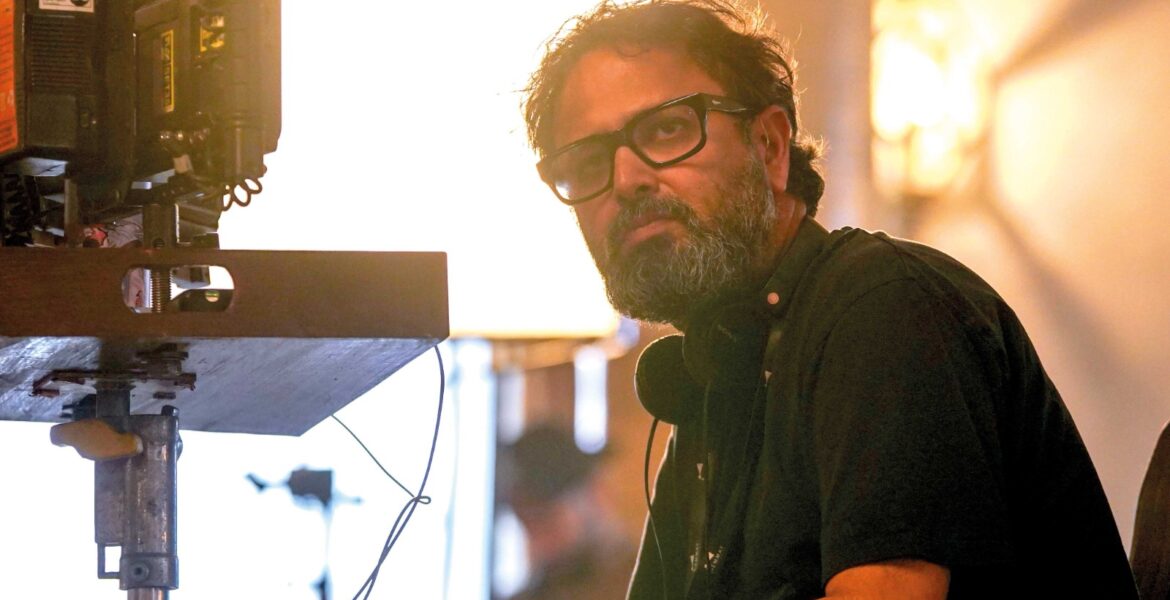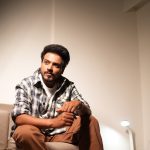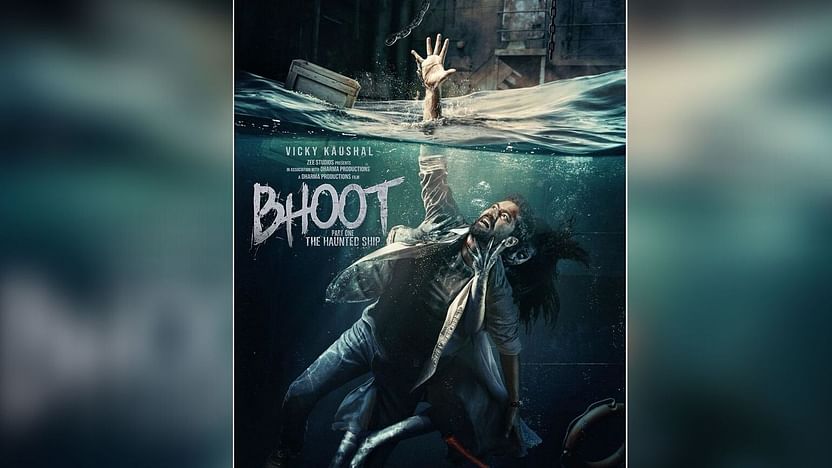From big screen romcoms to high-octane actioners and from socio-political thrillers inspired by real-life incidents to historical dramas on the OTT… as a storyteller, Nikkhil Advani clearly has his finger on the pulse of his audience. In an exclusive conversation with Aakanksha Naval-Shetye, the maverick filmmaker shares unscripted insights into his world of cinema and passion for filmmaking!
Producer-Director Nikkhil Advani – who has directed several hit films like Kal Ho Naa Ho that came to define pop-culture and even rousing thrillers like D-Day, Batla House, Vedaa, to name a few and produced equally impactful movies including Airlift, Mrs Chatterjee Vs Norway, amongst several others under his banner Emmay Entertainment – comes with zero filters and doesn’t believe in playing it safe either – neither on reel nor in real! Very much like his screen works – whether in cinema or on the OTT, the ace filmmaker believes in calling things as they are and has never been the kinds to shy away from making his socio-political stand clear and both as a director and a producer his films all spell soul-stirring content and solid substance! Interestingly, his approach does hit bullseye with the audience and irrespective of the Box Office status, his works resonate with the viewers who come away impacted by his story-telling.
 Currently the filmmaker’s been garnering high praise for his latest series Freedom At Midnight and is also riding high with the theatrical re-release of his debut KHNH 21 years later. I caught up with the filmmaker at the Filmfare OTT Awards 2024, where he has yet another reason to celebrate as he has clinched the Best Director (Critics) Award for Season 2 of his series Mumbai Diaries. Congratulations are certainly in order as we dive headlong into a candid conversation trying to decode the cinematic universe of this maverick storyteller!
Currently the filmmaker’s been garnering high praise for his latest series Freedom At Midnight and is also riding high with the theatrical re-release of his debut KHNH 21 years later. I caught up with the filmmaker at the Filmfare OTT Awards 2024, where he has yet another reason to celebrate as he has clinched the Best Director (Critics) Award for Season 2 of his series Mumbai Diaries. Congratulations are certainly in order as we dive headlong into a candid conversation trying to decode the cinematic universe of this maverick storyteller!
You’ve constantly been raising the bar as a filmmaker…
Yeah, it is ambition. Ambition and hard work are the two pillars for us at Emmay Entertainment. And personally too, you know the saying… ‘I’m always competing above my weight’! So that’s the idea, to try and keep pushing your limits.
 Your most recent OTT series Freedom At Midnight on Sony LIV revealed some very interesting facets of Indian history that’ve not been much explored. How much liberty have you taken as a filmmaker in terms of the creative outlines?
Your most recent OTT series Freedom At Midnight on Sony LIV revealed some very interesting facets of Indian history that’ve not been much explored. How much liberty have you taken as a filmmaker in terms of the creative outlines?
I think we’ve largely been exposed to the concept of what actually took place to bring us to 15th August 1947. One of the big outcomes of those events was partition. We’re taught about that in our history books, but you’re definitely not exposed to the private conversations which for all intents and purposes… somebody told me that although they are imagined, they do have the story moving further and coming down closer to how we reached 15th August 1947. So I think what we have tried to do in this series is take you into the board room, take you into the gadda room, take you into Jinnah’s study, take you into the Viceroy’s study, and yes, I have taken that liberty, as the series is based on the book ‘Freedom At Midnight’ that was written because Mountbatten opened his private journals to Dominique Lapierre and Larry Collins who have also written ‘Is Paris Burning’ and ‘O Jerusalem’ and he said how can you not document and chronicle one of the greatest moments in modern history. So he gave them his diaries and they wrote, researched and interviewed. But, while there may be more facts in the book about his conversations with the Indian leaders and the leaders of the sub-continent, they do not know what actually transpired between Gandhi and Jawaharlal Nehru and Sardar Vallabhbhai Patel and Nehru and Nehru and Muhammad Ali Jinnah. So obviously I have to take liberty over there understanding that possibly this is how the meeting happened since the outcome of the meeting is already known.
“When I was doing D-Day, I went with 50 shots to try and impress Irrfan who had just come from Life of Pi. And he looked at me and he just said, yaar main bohot accha actor hu, vo bohot accha DOP hai. Toh main acting karta hu, Tushar capture karega, tu monitor pe baithke mazze loot. I loved the words ‘mazze loot’ and they have stayed with me ever since! I don’t think the film would’ve been such a game-changer if it was not what Irrfan told me on Day 1 of shoot.”
Filmmakers are often wary of exploring something so politically-driven that may edge on the controversial. So what made you choose this subject in particular?
Everybody knows what my politics are. So, I think that answers all those questions in the sense that everybody knows where I stand as far as politics, as far as women, as far as children, as far as gender, as far as sexuality is concerned… everybody knows. I’m pretty open about it, you go on to my social media, you’ll see the people I follow, the people I repost and whatever. So that is the advantage of having social media which is that you can actually say what you want to say… You know everybody has an opinion. So I think that took care of my personal politics. As far as Freedom At Midnight is concerned, the long line of the show is ‘the history that you may know but the history that you should know’. So, we’ve concentrated on the events. I’ve tried to document the events that I think none of them had any control over really. They made very tough decisions in extremely tough times and those decisions are allowing me and you to have this conversation today about Freedom At Midnight. I might ruffle some feathers, but then I ruffled feathers even when I made a Patiala House and a Batla House! Might as well make it worthwhile (laughs)!

And with Kal Ho Naa Ho too!
Haan… I got so much of aapko Shah Rukh Khan ko nahin maarna chahiye tha.
You have come a long way since… Your films are getting more intense too!
I’m 54 years old! I just feel that you know at the end of the day, I’m very fortunate that my company is run by two very strong women who have made sure that my car ka EMI, my credit card bills and my house rent are all paid for. So if that is done and my daughter gets to go to the college that she wants to go to, I’m a happy man. And so I don’t know this 600 cr or 800 cr business. Mujhe pata nahin kya karu main! What am I supposed to do? Buy another house? Buy three houses more? I don’t need that. I love the house that I live in. I love going home after a long day’s work. I have a wall full of books that I love to read, I have LPs from Frank Sinatra to Shujaat Khan, I love having my prawn curry rice, and I’m very happy. So therefore, if I want to now tell a story, I want to try and tell a story which is more worthwhile, which I feel happy about, I go to sleep well, my family looks at me with a certain level of respect and say ‘ki yaar we are proud of what you’re doing’. So I think that’s the decision that I take when I’m choosing anything, whether I’m producing or whether I’m directing. I’m not here only for that 600 cr. I don’t know how to make 600 cr. Mujhe samajh mein nahin aata and where does one even stop! I don’t even want to explore that formula. For me, I’d rather make a Rocket Boys, a Freedom At Midnight, a Vedaa and I can make Mrs. Chatterjee vs Norway. So I feel I am pretty content and happy.
 Being in the position of a producer, is there a temptation to also direct all the interesting projects coming your way?
Being in the position of a producer, is there a temptation to also direct all the interesting projects coming your way?
You know a big part of Emmay Entertainment has been to ‘pay it forward’. Because of what Karan Johar and his father Yash Johar or Aditya Chopra and Yash Chopra did for me… They supported me although I had no connection in the industry, and it’s not as if I came with a big degree in filmmaking. I was just a kid who was willing to work hard, had watched all the films and had failed my 12th standard because I was watching all the films. So a big part of our legacy at Emmay Entertainment is that we need to constantly give a voice to storytellers and newer talents. Whether it’s Abhay Pannu, Mitakshara Kumar, or Ashima Chibber… When they came up with incredible scripts, it would have been very foolish of me to say ki ye bohot accha script hai, main le leta hu, main khud banaunga. So I enjoy flipping through both those roles very effectively.
“You know a big part of Emmay Entertainment has been to ‘pay it forward’. Because of what Karan Johar and his father Yash Johar or Aditya Chopra and Yash Chopra did for me… They supported me although I had no connection in the industry, and it’s not as if I came with a big degree in filmmaking. I was just a kid who was willing to work hard, had watched all the films and had failed my 12th standard because I was watching all the films.”
You complete 30 years in the industry this year. What has been the biggest lesson for you through the ups and downs here, also in context with some of your films doing better today than they did when they had first released, do you think they were ahead of their time?
There have been a lot of downs and very few ups (laughs). The ups have been huge though. Whether it was Chandni Chowk to China or Salaam-e-Ishq, I have so many people appreciating it today, but tum log us time pe kyu nahi jaake dekha? So, no doubt, it’s done better in satellite than it did in theatres. But there were huge issues with the film too. There was a certain level of arrogance in Salaam-e-Ishq that I can show the world I can do six love stories and with Chandni Chowk to China, it was a desperation. There were too many people pulling the film from different sides. I would be lazy to say that the non-performance of some subjects and films that I have done is because they were ahead of their time. No, they were wrong. There were problems in those films.
 You have explored such a huge range of genres, from romcoms to action thrillers, comedy to historical dramas… what is your temperament really like on the sets?
You have explored such a huge range of genres, from romcoms to action thrillers, comedy to historical dramas… what is your temperament really like on the sets?
I’m extremely impatient yaar! Also I come from a place where I don’t take things very seriously. I don’t take myself very seriously, I don’t take method very seriously. When I was doing D-Day, I went with 50 shots to try and impress Irrfan who had just come from Life of Pi. And he looked at me and he just said, yaar main bohot accha actor hu, vo bohot accha DOP hai. Toh main acting karta hu, Tushar capture karega, tu monitor pe baithke mazze loot. I loved the words ‘mazze loot’ and they have stayed with me ever since! I don’t think the film would’ve been such a game-changer if it was not what Irrfan told me on Day 1 of shoot. ‘Why do you come with pre-conceived notion of what the scene should be? Let it become organic’! With that I grew and learnt to adapt more.











